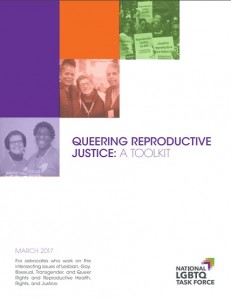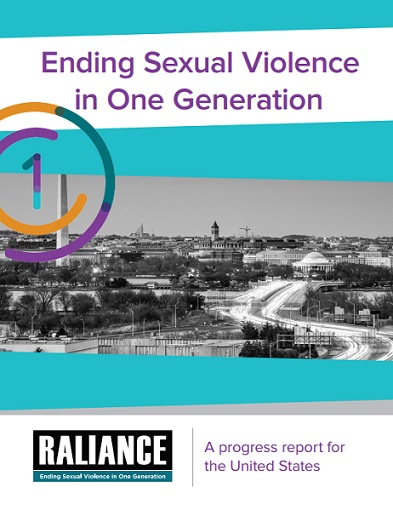Resources Library: Advocates
Start a Search:
Protective Orders in Virginia - A Training
Virginia Sexual and Domestic Violence Action Alliance staff produced this power point presentation to train sexual and domestic violence advocates on the Virginia protective order process. This 31-slide presentation provides an overview of the different types of protective orders, describes how individuals can petition for them and how they work, and includes links to relevant VA Code sections.
Q&A for Advocates and Attorneys Serving Immigrant Survivors of Gender-based Violence
Who is this document for?
This is a Question and Answer (Q&A) for domestic violence and sexual assault (DV/SA) victim advocates and attorneys who are serving immigrant survivors of gender-based violence, both undocumented survivors and survivors who may be eligible for VAWA self-petitions, U visas, T visas or applying for gender-based asylum. Keep in mind that this information may change as we learn more about the plans of the incoming administration. This document is not legal advice or authority, but rather, it is for informational purposes only, not for media distribution.
Why is this important for survivor safety?
President-elect Trump pledged to make several sweeping changes to immigration policy within his first 100 days. Several of those changes are related to the potential termination of the Deferred Action for Childhood Arrivals (DACA) program and increased enforcement and stricter penalties for those with criminal records and those who re-enter after a previous removal order. As of right now, we do not know whether the incoming administration will be specifically looking to make changes to survivor-based immigration relief. Nonetheless, staying informed about the national and local law enforcement policies and practices is essential to safety planning with survivors of gender-based violence (domestic violence, sexual assault, trafficking). If you are a victim service provider who works with immigrants and want more information about local law enforcement immigration policies and practices, please contact the Domestic and Sexual Violence Coalitions in your state.
Read and download the English Q&A document here.
Read and download the Spanish Q&A document here.
Questions this document answers:
This document was prepared by Americans for Immigrant Justice, Asian Pacific Institute on Gender-Based Violence, ASISTA Immigration Assistance, Casa de Esperanza: National Latin@ Network; Center for Gender & Refugee Studies, Freedom Network USA, Immigrant Legal Resource Center, Immigration Center for Women and Children (ICWC), Julie Marzouk Assistant Clinical Professor, Dale E. Fowler School of Law at Chapman University, Minnesota Coalition for Battered Women, National Immigrant Justice Center, Tahirih Justice Center, We Belong Together.
Queering Reproductive Justice: A Toolkit

This advocacy tool is intended for reproductive rights, health, and justice advocates who want to gain a solid understanding of repro issues within an LGBTQ context. It is also intended to help LGBTQ advocates frame their current work within a reproductive justice framework in order to build crucial alliances and advocate for the repro needs of LGBTQ people.
Race to Lead: Women of Color in the Nonprofit Sector
This report reveals that women of color encounter systemic obstacles to their advancement over and above the barriers faced by white women and men of color. Education and training are not the solution—women of color with high levels of education are more likely to be in administrative roles and are more likely to report frustrations about inadequate and inequitable salaries. BMP’s call to action focuses on systems change, organizational change, and individual support for women of color in the sector.
Raliance Report: Ending Sexual Violence in One Generation
 This report analyzes progress in the movement to end sexual violence and how it is shaping public conversation and, ultimately, our culture in how we address this important societal issue. Although much work remains to be done, significant accomplishments have been made and additional positive changes are underway.
This report analyzes progress in the movement to end sexual violence and how it is shaping public conversation and, ultimately, our culture in how we address this important societal issue. Although much work remains to be done, significant accomplishments have been made and additional positive changes are underway.
Raliance is a collaborative initiative dedicated to ending sexual violence in one generation. Composed of three top sexual violence prevention organizations – the National Sexual Violence Resource Center (NSVRC), the California Coalition Against Sexual Assault (CALCASA) - PreventConnect and the National Alliance to End Sexual Violence (NAESV) – Raliance serves as the central hub for effective allocation and distribution of programmatic funding in sexual violence prevention and as the go-to resource for policymakers, advocates, service providers and the media. Raliance is funded through a $10 million multiyear commitment from the National Football League. The name was inspired by the entity’s intent to rally engagement from stakeholders and align goals and resources behind its overarching mission of putting a stop to sexual violence once and for all. Learn more at Raliance.org.

